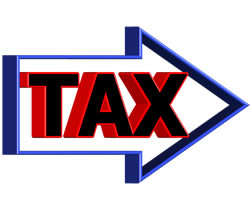Rod Myer* says with the new financial year upon us, make sure you have these bases covered.
 The calendar has tipped over into the new financial year and there are things you need to focus on to make sure you do the best you can to benefit your finances.
The calendar has tipped over into the new financial year and there are things you need to focus on to make sure you do the best you can to benefit your finances.
Deductible taxation expenses
It’s time to start getting the information together you will need to lodge your tax return.
That means putting together receipts for spending on work-related expenses — things that help you earn your income.
This can include uniforms, protective clothing and even handbags and briefcases that you use for work.
You can claim the percentage of mobile phone costs you use for work, as well as car and travel expenses that apply to work.
Computers and recorders used for work are also claimable, as are the tools of your trade or profession.
A percentage of your TV or even camera can be claimed if you can show they are necessary for your job.
For car costs you can calculate the actual distance travelled up to 5,000 km and claim 68c per km or claim a percentage of total mileage for business travel supported by a log book.
You need to know all your expenses like fuel, registration, insurance, finance charges and maintenance as well as the cost of the vehicle, which you may be able to depreciate.
If you work from home, you can claim a percentage of utilities bills as a work expense.
Subscriptions to publications that are relevant to your work are claimable, as are subscriptions to professional associations and trade unions.
Payment summaries
In previous years your employer would give you a payment summary or group certificate detailing the income you have earned, the tax you have paid and superannuation contributions made on your behalf.
However, now if your employer has more than 20 staff you won’t get a summary as your boss has told the Tax Office directly.
Education is difficult
Education expenses can be a minefield.
The Tax Office will allow a deduction for a course and related costs, like books and transport, that enhances your skills and knowledge within your current job.
But if you’re looking to get ahead by retraining, you can’t claim.
Superannuation
If you found you had a bit of spare cash in late June you wanted to contribute to your superannuation account but didn’t get around to it before 30 June, then you’re out of luck.
You can’t make a contribution for last year after 30 June.
But think of the future.
You could still make a personal contribution for the current year, which will be taxed at a lower rate than your savings outside super.
Also, if you want to formalise extra super contributions, arrange a regular salary sacrifice contribution with your boss.
Also changes to the super system since 1 July mean that you might lose the insurance that comes with your account without you knowing.
If you are under 25 or have less than $6,000 in your fund you will have to opt in to keep insurance.
Think carefully about your insurance needs and remember that if you have a young family, are in a dangerous job or are working intermittently this may be the only cover you can get.
To keep your insurance cover, you will have to contact your fund to opt in or respond to communications it has sent you on the issue in recent times.
Don’t be caught short without cover you might need.
* Rod Myer is a journalist and Editor of YourSuper. He tweets at Rod Myer.
This article first appeared at thenewdaily.com.au.











